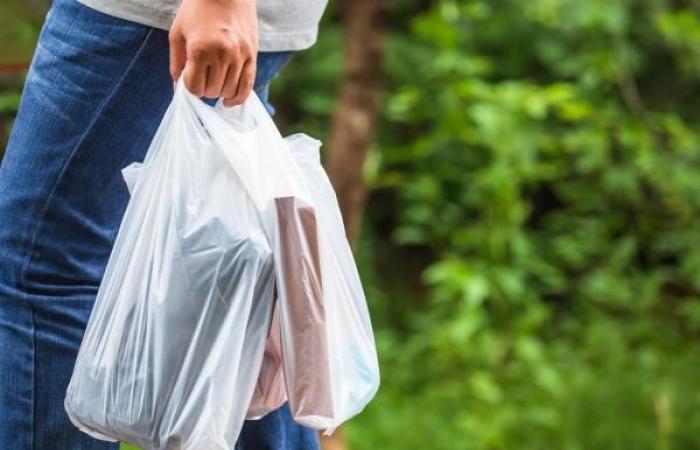From July 7, 2024, the production and use of single-use plastics will be prohibited in Colombia. The measure is implemented to comply with Law 2232 of 2022, which determines the actions for the gradual reduction and replacement of this type of materials.
(Read more: Replacing oil and coal with gas would reduce Latin America’s emissions by 7%, according to CAF)
With the entry into force of the standard, some categories of single-use plastic products will gradually leave the market. This with a view to starting a conversion towards more sustainable and eco-friendly alternatives.
In that order of ideas, The first articles that will be left out are:
– Point of payment bags used to pack, load or transport packages and merchandise, except those reusable or for industrial use.
– Bags used to package newspapers, magazines, advertising and invoicesas well as those used in laundries to pack washed clothes.
– Rolls of empty bags on commercial surfaces for packaging, loading or transporting packages and goods or carrying bulk food, except for raw animal products.
– Drink mixers and straws.
– Plastic supports for inflation pumps.
– The plastic holders for cotton swabs or flexible swabs with cotton tips.
The regulations also contemplate some sanctions for failure to comply with the established measures. These include financial fines, ranging from 100 to 50,000 minimum salaries; the confiscation of products, and the temporary closure for those establishments that violate the law.
In six years (July 7, 2030) other plastic products would leave the market defined by the legislature. On that list are: confetti, tablecloths and streamers; adhesives, labels or any badge that is attached to plants; single-use plates, trays, knives, forks, spoons, glasses and gloves, among others.
(See: Zero Waste: challenge of the 32 departments to carry out the circular economy)
Single-use plastics iStock
(Read more: Acoplásticas will participate in the Action Platform to eliminate pollution)
Law 2232 of 2022 states that not all single-use plastics will be eliminated. So, those products that fulfill a medical purpose or that are used for food preservation are exempt from the ban.
In this context, articles intended and used for:
1. Medical purposes for reasons of asepsis and hygiene; and for medical, pharmaceutical and/or clinical nutrition conservation and protection that do not have alternative materials to replace them.
2. Contain chemicals that present a risk to human health or the environment when handled.
3. Contain and preserve foods, liquids and beverages of animal origin, as well as processed or pre-prepared wet foods or inputs that, for reasons of asepsis or safety, because they are in direct contact with food, require a single-use plastic bag or container. .
4. Specific purposes that for hygiene or health reasons require a single-use plastic bag or container, in accordance with health regulations.
5. Provide services in establishments that provide medical assistance and for use by people with disabilities.
(Read more: The challenges of Latin America to promote ‘nearshoring’)
Single-use plastics iStock
6. Single-use plastics whose substitutes, in all cases, have a greater environmental and human impact according to Life Cycle Analysis results that incorporate all stages of the plastic life cycle (raw material extraction, production, manufacturing, distribution, consumption, collection, final disposal (including its persistence in the environment)).
7. Those packaging or containers of the products taken into consideration by the National Administrative Department of Statistics (DANE) for the determination of the Consumer Price Index (CPI) or Family Basket, except those whose purpose is to package or package fruits, vegetables and tubers. fresh that in their natural state have shells; fresh aromatic herbs, fresh vegetables and fresh mushrooms; laundry clothes; diaries; newspapers; and packaging for non-prepackaged liquids, foods and meals for immediate consumption, take-out or home delivery.
8. Pack or package hazardous waste, in accordance with current regulations.
9. Those products manufactured with 100% recycled plastic raw material from national post-consumer material, certified by organizations accredited for this purpose by the national government.
10. Straws attached to containers of up to 3000 milliliters (ml), which have a retention system for these that guarantees their collection and recycling together with the containers, as long as they contain products included in the family basket, programs school feeding or products that aim to guarantee food security.
(Read more: The energy marketer that works with KFC, Miniso and Pepe Ganga)
BRIEFCASE


